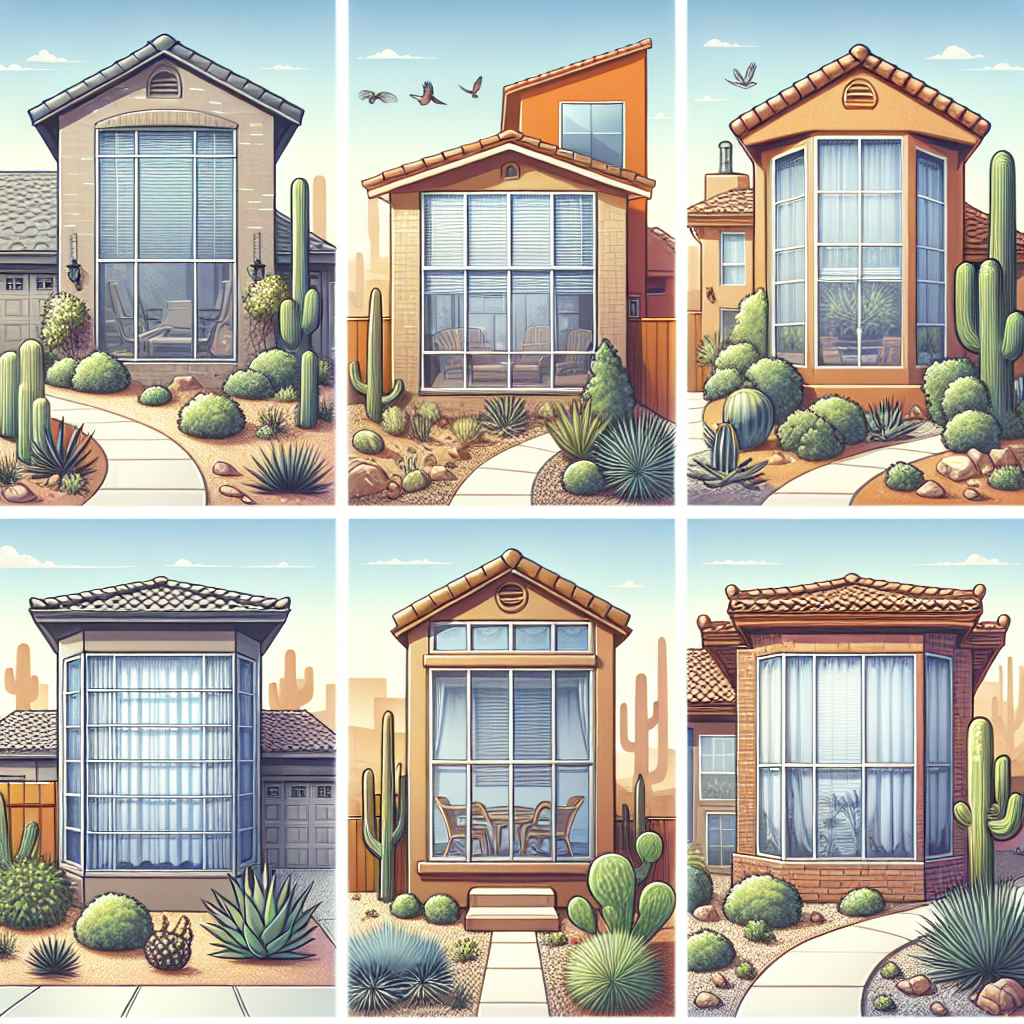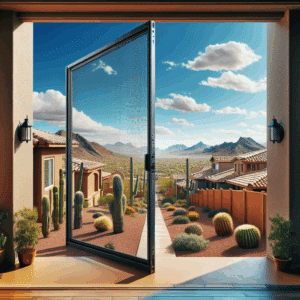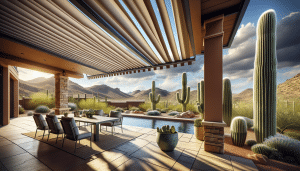At Arizona Screen Company, we’re passionate about helping homeowners make informed decisions about their window screens. With so many options available, finding the right fit for your needs can be challenging. That’s where we come in! In this article, we’ll break down the pros and cons of different types of window screens, making it easy for you to choose the perfect screen solution for your home.
Contents
Traditional Fiberglass Screens
Fiberglass screens are a popular choice for many homeowners. They’re known for their affordability and versatility. These screens are easy to install, making them a convenient option for any home.
However, fiberglass screens are less durable. Over time, they can become brittle and may need replacement. Although they provide effective insect protection, they might not stand up well to pets or extreme weather conditions.
Aluminum Screens
Aluminum screens are another widely used option. These screens are more durable than fiberglass and can withstand harsh weather conditions better. They’re also rust-resistant, which is a huge plus for areas with a lot of moisture.
On the downside, aluminum screens can dent or crease more easily. Their rigidity can make installation a bit more challenging. Despite these minor setbacks, they are excellent for long-term use.
Pet-Resistant Screens
For households with furry friends, pet-resistant screens are a game-changer. These screens are specifically designed to be tougher and withstand the wear and tear caused by pets.
The major advantage is their enhanced durability. They’re perfect if your pets love to lounge near the windows. However, keep in mind that they might be slightly more expensive than standard options. But considering their durability, the investment can be worthwhile.
Solar Screens
Solar screens are designed to minimize heat and glare from the sun, making your home more energy-efficient. They can significantly reduce cooling costs in the long run.
Though they offer great benefits, they also come with a few drawbacks. Solar screens might reduce visibility and natural light more than other options. You’ll need to weigh these factors when considering solar screens for your home.
Retractable Screens
Retractable screens offer the flexibility of enjoying unobstructed views when screens aren’t needed. They can be easily rolled away, providing a seamless indoor-outdoor experience.
The convenience of retractable screens can’t be overstated. However, they tend to be on the pricier side and may require occasional maintenance to keep them rolling smoothly.
Security Screens
Security screens provide added protection against break-ins while still allowing airflow and visibility. They’re constructed from robust materials, offering peace of mind to homeowners.
Although security screens are more expensive, their sturdy construction justifies the investment. They’re perfect for those who prioritize safety without sacrificing style.
Stainless Steel Screens
Stainless steel screens are incredibly durable and offer superb resistance to corrosion and damage. They’re perfect for homes in areas prone to severe weather.
While they come at a higher cost, their longevity can offset the initial investment. They’re great for homeowners who seek a sturdy, long-lasting option.
Advantages of Vinyl-Coated Screens
Vinyl-coated screens combine durability with a sleek appearance. They’re resistant to fading, making them a stylish choice for modern homes.
That said, they’re slightly less durable than their aluminum and steel counterparts. Despite this, their continued popularity is a testament to their value and functionality.
Comparing Different Types of Window Screens: Quick Look
- Fiberglass Screens: Affordable and versatile, but less durable. Suitable for standard use with moderate weather conditions.
- Aluminum Screens: Durable and rust-resistant, though prone to dents. Ideal for areas with more variable weather.
- Pet-Resistant Screens: Tougher for households with pets. They cost more but offer significant durability benefits.
- Solar Screens: Energy-efficient by reducing sun exposure, with a trade-off in visibility and light.
- Retractable Screens: Flexible and convenient but can be expensive and require maintenance.
Making Your Choice
Choosing the right window screen depends on your unique needs and environment. Consider factors like weather, pets, and your budget when making your decision.
If you’re looking for energy efficiency, solar screens might be your best bet. For families with pets, consider pet-resistant screens that offer extra durability. We’re here to help you find the perfect match!
We hope this guide has been helpful. With the right information, choosing your ideal window screen solution becomes a breeze. Our team at Arizona Screen Company is always ready to help, whether you reach us by phone at 480-771-2543 or Request a Free Quote.




